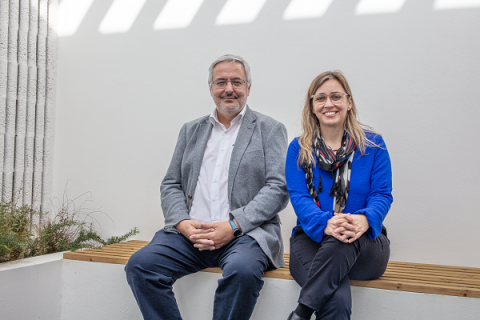
An international team led by Cláudio Soares, Pro-Rector of NOVA University Lisbon, and Professor at the Institute of Chemical and Biological Technology António Xavier (ITQB NOVA), and Diana Lousa, one of the scientists in the group, has just received €8 million in funding from Horizonte Europe to discover and produce new medicines against viruses. The project is the only one with national coordination to be selected in the 2023 Health Cluster call.
Since the beginning of the COVID-19 pandemic, ITQB NOVA’s Protein Modeling Lab, led by Cláudio Soares, has focused on developing and testing innovative molecules against new threats. Although this topic has long been part of the team’s agenda – the researchers have been studying the flu virus for years now -, the need to accelerate the development of new biopharmaceutical products against pathogens in pandemic scenarios became even more real and urgent with COVID-19. “The current antivirals act against a very small number of viruses”, explains Diana Lousa, one of the project leaders. “Since we cannot predict the virus(es) that will cause the next pandemics, we need antivirals that act against a large spectrum of pathogens and which can easily and quickly be adapted in emergencies.”
This was the idea behind EvaMobs, the project selected in Horizon Europe’s highly competitive Health Cluster call. “In 2022 we won the BioPlaTTar project, from la Fundación La Caixa, a funding of 1M€ to create a platform to fight COVID-19 and the flu”, Diana Lousa recalls, before adding. “This new funding will allow us to work on other viruses and pharmaceuticals and take our research to clinical trials”, she explains.
Using artificial intelligence and physics-based models, the team proposes to design new proteins that bind to viral targets. “It is as if the viruses’ components were the locks and we are looking for the keys that fit best”, adds Cláudio Soares.
More information on the ITQB NOVA Website